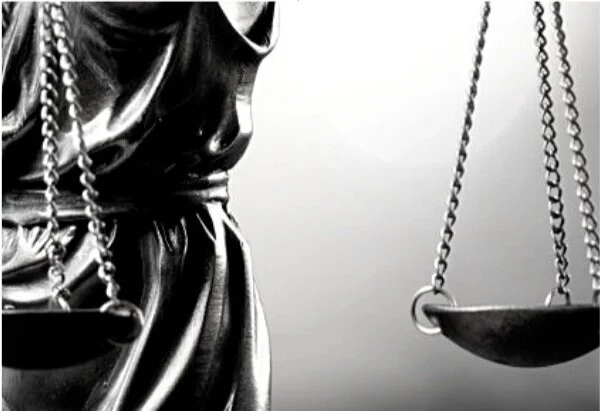The Stories We Tell (Part 3)
/In the first two parts of this series, we reframed problematic parts of our psyche as Protectors that developed out of our need to survive experiences that were overwhelming. In so doing, what looked like destructive forces within us were viewed as out-of-balance collaborators that could become part of our healing stories of survival and transformation. Here in Part 3, we will see how rewriting the stories we’ve learned about our family of origin can impact the story we tell about ourselves.
We are the product of generations of elders and ancestors from both sides of our family tree. Our life is the culmination—the endpoint—of all the strivings, struggles, and victories of those who came before us. All that they accomplished becomes their legacy to us: our talents, our health, our beliefs, and our values are their gifts to us. We can take what has been given to us and use it to make our life. But that is not all that is passed down to us. Also part of their legacy is what has not been acknowledged, processed, and healed.
According to research of the last 30 years, scientists have begun to find that our genetics may contain the imprinting of the unfinished stories of our parents and grandparents up to the seventh generation.[1] An untimely death in the family, a secret, a tragedy, war or famine, losses sustained through immigration, suffering from racism or poverty; all of these leave a scar on the soul of the family. However, when these can be acknowledged, they can become transformed into a story of survival and resilience.
via britannica.com
When we see our family story with soft eyes—with the eyes of compassion—they can empower us. If they are not acknowledged, however, they may become symptoms that don’t seem to respond to treatment. They can leave us with a sense that something is missing, a restlessness, problem patterns in our life, even physical symptoms. For example, physical disorders that don’t respond to treatment are often a sign of entanglement with someone else in the family lineage whose suffering was not acknowledged.
Other entanglements can make us feel afraid to reach out to Life. They may produce Shame—that feeling of not being enough that moves us to turn inward instead of asking for help. We don’t necessarily even need to know the details of our family’s past to take on their unfinished business. This process is most often unconscious; it yearns for us to see, feel, honor, and let go of the traumas and losses of those who came before us so that we will be free to create our own life story.
My Own Journey
I thought I was doing pretty well the winter of 2005-2006. I was in a healthy relationship, my children were into their own lives, work was moving along. While I periodically suffered from anxiety, I had learned to manage it well enough, mostly by avoiding situations that would trigger it. I was aware of restlessness for something more—of what, I didn’t know—but I had learned to push that feeling down and focus on my daily routine. So I was “ok.”
via floorish.com
Then I was led on yet another path of self-discovery by a random article in the periodical, Spirituality and Health, entitled “How to Heal Your Family”. [2] The title drew me in especially because of my role as the eldest in my family and as an experienced caretaker. I remember thinking, Yes! Of course, I wanted to heal my family—not only my children and my partner, but all my family of origin and, specifically, my parents. Little did I know then that this short reading would lead me to do some major “changing” of my own, change that I didn’t even know I needed.
It began with my attending a Constellation workshop by one of the facilitators quoted in the article. I had made a mental note to check her out because she lived near my home. Two weeks later, I received a random email about an upcoming workshop on Family Constellations. Who was it from? The same facilitator quoted! I registered for the workshop without hesitation, even though I had only a minimal idea about what to expect. This was very out of character for me, but I literally felt “called” to attend.
At the workshop, the facilitator jumped right into the work after a brief meditation to help us arrive and focus on our body sensations. The first person to ask to be the “client” wanted help with her career. She was a teacher and a musician (like me at the time), and she felt stymied about moving forward with her music. I was asked to represent the client’s mother, with whom she had a tense relationship. All I would have to do was to stand up in her place and report any feelings I experienced. I agreed.
When I stood up, I was immediately overtaken by a heaviness that made me feel frozen to the ground and dead inside. Where had “I” gone? It felt both alien to my mood at the moment, yet strangely familiar. Was this how my own mother felt when she acted depressed and inaccessible, I wondered.
This was my introduction to the power of standing in a morphic field of energy in the service of another person. I would later learn that it is called, “The Knowing Field.”
via South Asia Monitor
We Are All Connected
As far back as I can remember, I always believed that we are all connected. What that meant, I wasn’t exactly sure, but it felt intuitively accurate. Despite our apparent differences, we all have a soul, or spirit, “made in the image and likeness of God” according to the Catholic catechism I grew up memorizing. That meant that we all have a piece of the divine within us.
I remember my parents teaching us to be compassionate by saying things like, “Everyone is the same inside.” Sometimes, this was hard to appreciate, especially when my sister and I got into a fight! However, in principle, I believed it.
Representing someone else in a Constellation confirmed, for me, the truth of our oneness. I could feel the feelings of another human being I didn’t even know. In reporting them when asked by the facilitator, I could help the client understand her mother from a very different perspective. Instead of experiencing her mother as cold, distant, and withholding, she literally observed the internal struggles her mother faced as I reported my experience representing her.
Later in the Constellation, we discovered that her maternal grandmother had been very critical of the client’s mother, and was angry about being left to care for her after her husband had disappeared. This grandmother blamed her daughter. This guilt was internalized by the client’s mother; she felt paralyzed to make up for the grandmother’s (her mother’s) disappointments in life. In response, the client’s mother had shut down her feelings of powerlessness and self-hatred.
via George Washington University
Throughout the Constellation, it was clear from the representatives of the “client’s mother” that she felt undeserving of a good life. This belief, though never verbalized in real time, was passed down to her own daughter (the client), who, in the workshop, presented her career problems as partly being paralyzed by fear of criticism about not being good enough.
By the end of the Constellation, watching this dynamic unfold resulted in two important shifts for the client: First, it softened her heart toward her mother. Instead of resentment about her mother’s distance, she felt empathy and understanding. Second, she realized that her mother’s distance had more to do with her own demons than any lack of love for her (the client). This realization freed the client to disentangle her own story from her mother’s.
These words were given for the representative of the “client” to say to the representative of her mother:
“I am a good and loyal daughter, and I have carried the burden of your depression out of love. I now return it to you, Mom.
Please bless me that I may fully take on my own life.”
With this resolution statement, the “client” was able to release something she didn’t even know she was carrying. She left feeling calm and in balance. In a follow-up meeting, she reported having picked up her musical endeavors with hopeful enthusiasm.
Through this experience, I too left feeling the same sense of release—release from the over-responsibility I felt for my own mother’s depression and unfulfilled dreams and, somehow, hopeful about my own life pursuits.
Discovering Constellation Work
After this profound experience, I knew that I wanted to learn this Constellation work. As someone who had already begun incorporating ideas about spirituality in this work, It seemed to be the right next step for me in working as a family therapist. To me, constellation work seemed to be a combination of family systems work and spirituality.
In Constellation work, we ask questions like:
“Who else suffered as you are presently struggling?”
“Who was not acknowledged? Who or what is missing in the family story?
“What might this symptom be trying to manifest about a greater need?”
“In what context does this symptom make sense?
“How is this symptom trying to help you and/or your family heal?"
Constellation work is not a cure-all. It requires a very different focus: rather than insight and cognitive understanding, it relies more on intuitive knowing and the appreciation of how energy/spirit connects us in previously unimaginable ways. It requires an openness to paying attention to the body, trusting the sensations, emotions, and movements within. It encourages us to ask questions that might lead to a different story about our experience. It requires us to suspend belief in our “story” about who we think we are and why things are as they are in our life. It directs us to let go of the details and focus on the thread of unprocessed loss and trauma in our own life or in the family story.
via Pinterest
In the next part of this mini-series, we will focus on the principles, called the “Orders of Love,” that guide the work in Constellations. We will use stories from my own life experience and from those of people I have known over the years. These stories will demonstrate how the story we tell about ourselves is so often limited by our narrow perspective, in particular by a lack of appreciation for how the echoes of our family’s past traumas reverberate through us.
We will explore how to reframe our present challenges from the eyes of love and loyalty to our family’s need to survive and thrive. We will see how those seen as the “problems” in the family often take on these roles to help the family in some way. With these stories, it is our hope that we can come to understand that things aren’t always what they seem and that they can only be understood when we take a long view of the events as they have unfolded through the generations.
Stay tuned for Part 4 of the “The Stories We Tell” mini-series.
Share your comments at the bottom of the page.
© Whatismyhealth
Special thanks to our resources:
YouTube. ”Ghost in Your Genes”—5 Part series BBB Nova Special on Epigenetics. http://www.bbc.co.uk/sn/tvradio/programmes/horizon/ghostgenes.shtml
Spirituality and Health, “How to Heal Your Family”, November/December 2015.




























Understanding our attachment styles can help us bypass destructive strategies and find a more authentic connection.